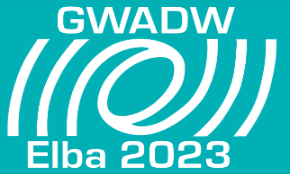Speaker
Description
Conventional design processes for complex (quantum) optics experiments and devices, such as gravitational wave detectors, rely heavily on the expertise and intuition of human researchers. However, given the vast and often counterintuitive search space of potential experimental configurations, alternative approaches may prove beneficial. The advent of powerful computational algorithms and artificial intelligence (AI) provides an opportunity to augment human creativity and uncover innovative, unconventional solutions.
In this presentation, we showcase a comprehensive, large-scale exploration of the search space for potential gravitational wave detectors using advanced computational algorithms. By defining a quasi-universal interferometer with hundreds of continuous parameters, we employ efficient discovery algorithms to navigate the vast search space. This space encompasses numerous human-designed systems from the past and may reveal previously undiscovered and innovative solutions. Our findings demonstrate new, superior solutions across several physically relevant frequency ranges.
This presentation aims not only to share our results but also to engage the scientific community for feedback on the physics of the digitally discovered solutions and stimulate discussions on computational simulators such as Finesse.

